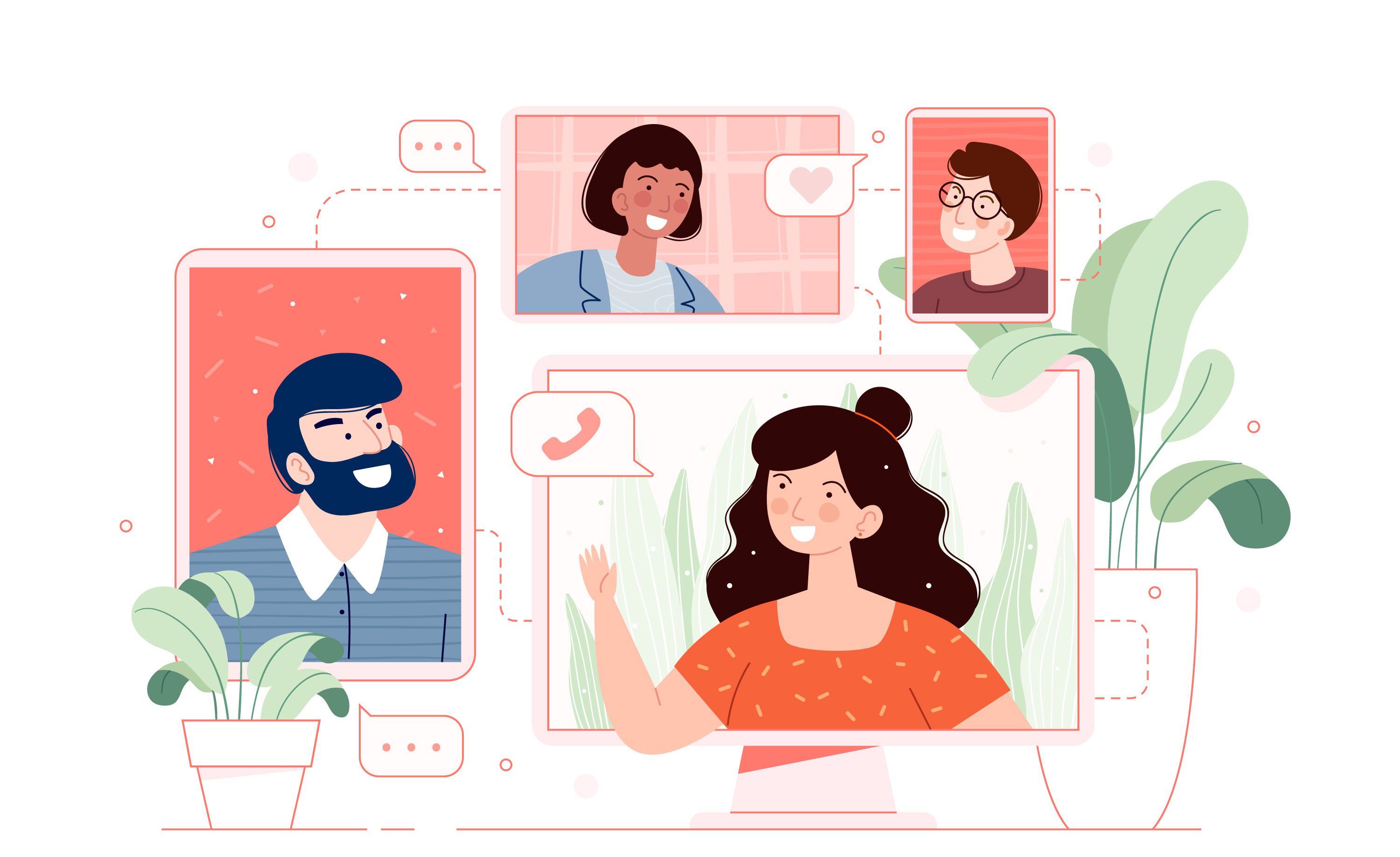The coronavirus pandemic has turned the early months of 2020 into a waking nightmare to many. Going to work is no longer an option to some, and a constant risk to others. Social gatherings pose a threat to everyone’s health, and the silent presence of asymptomatic carriers as well as the knowledge that the virus’ incubation period can stretch out over weeks creates palpable tension.
This tension has begun to exacerbate already existing mental health struggles, whether that be as a result of fear of illness, anxiety over vulnerable loved ones, or the isolation of quarantine. And for those without a history of mental health struggles, the same reasons are creating new problems that had not existed before.
“There’s a general panic all over the world,” says clinical psychologist Sarah El-Sokkary. “The media is reporting on rising numbers of infections, and if you’re residing somewhere where the numbers are rising, that heightens the anxiety.”
The Pressure of Isolation
One of the most mentally taxing aspects of the various suggestions and guidelines that help in reducing the risk of contracting the virus is social distancing and isolation.
Those whose job allows them to work remotely have been forced to decimate their exposure to other people, as have individuals who have lost their jobs. Even those still required to go to work are told to avoid close contact and gatherings.
El-Sokkary, who works as a psychological corporate consultant, told Egyptian Streets that the greater portion of her work is currently with individuals who work outside of their home country. She believes that the isolation encouraged as a safety measure, coupled with the inevitable isolation of being abroad alone is what led these individuals to reaching out to her for help.
“Being far away from your network and your support system makes you vulnerable to developing anxiety,” El-Sokkary states.
This is particularly true for Egyptian citizens living abroad.
Hazem Elessawy is an Egyptian who recently moved to Germany to work in IT. As he figured out the minefield of relocation and its difficulties, he was suddenly met with the burdensome challenge of navigating the social distancing measures imposed to impede the spread of COVID-19.
“I haven’t been here very long and before coming to Germany, I had spent my whole life in Egypt,” Elessawy tells Egyptian Streets. “I was already in the beginning of the process of rebuilding a life here, whether that means constructing a new social circle or looking for the activities that interest me.”
Elessawy, who said that he has not experienced notable mental health struggles before this time, had a busy schedule of artistic activities back home what with music groups and a theater troupe.
“I had just started looking for similar things to do here in Germany when this lockdown hit,” he said.
One of the greatest issues with isolation is that the responses and coping mechanisms people turn to are not necessarily always the most constructive ones.
Marta Ashraf, founding member and owner of Lilac, an online mental health awareness platform, tells Egyptian Streets that, as counter-intuitive as it may seem, many people respond to isolation by isolating themselves further.
Elessawy confirms that in his isolation in Germany he often finds himself inadvertently resorting to increased self-isolation, and freelance translator Maryam Nouhy, who has been struggling with depression for years, agrees.
“Depression also does not help with that,” says Nouhy referring to the feeling of isolation. “My energy levels are usually nonexistent, that’s another reason why communicating (even though I feel very lonely all the time) is extremely difficult,” she explains.
Alleviating the Pressure
Despite the fact that some lists and suggestions on how to cope with the feeling of isolation have gone viral (suggesting habits like maintaining a routine, reaching out to loved ones, and finding the time to exercise), Ashraf and El-Sokkary were both adamant on highlighting that there was no ‘one size fits all’ solution and advice.
“Us, as clinical psychologists, we never give advice, because what works for me might not work for you,” El-Sokkary stresses . “I could tell you to enjoy the isolation and make the best out of your chance to introspect, but if you’re a very outgoing and social person, this will be suffocating.”
Ashraf underlines that encouraging people to be productive at all times can lead to added strain, while El-Sokkary points out that idleness can lead to the magnification of mental health problems. But while both of those ideas hold true, they do not exist in a vacuum, and depending on whose ears they fall on, they may have a great result or a bad one.
“What we do with our clients is that we look at the things that make you feel better and the things causing a strain on your mental health, and we find a middle ground, knowing what aspects of your circumstances you can’t do anything about.”
El-Sokkary notes that understanding and internalizing the fact that one has no control over external circumstances is essential to dealing with the anxiety of living through a pandemic.
And as not everyone can financially afford to find advice and coping methods tailored to their by visiting psychologists in clinics, the Egyptian Ministry of Health and Population has set up two mental health hotlines that provide free sessions to those in need of help in light of the COVID-19 crisis.
Tech solutions for our Time
While every individual has their own needs and expectations to cope with the isolation brought about by the COVID-19 pandemic, the ability to have a virtual presence has been an undoubted source of comfort to many.
Video calls and chats are not quite the same as meeting in person, as Nouhy notes, and to her they still feel like they ought to be a temporary solution until she can see her loved ones in person. But to most people, among them Elessawy, they are far better than the lack of them.
In his experience, they have been a help to him as he wades through the difficulties of this new and distant life, and they have become a staple in his routine.
“Every day I call a different friend while taking a walk. It really helps to know that we are not alone and that there are others out there facing the same threat,” Elessawy tells Egyptian Streets.
El-Sokkary also recounted how in her various circles, she observed that people were using virtual means to alleviate the pressure they are feeling due to the COVID-19 outbreak.
Through their online communities, people from different backgrounds are finding different coping mechanisms and sharing them online with those most likely to find them helpful. Some are finding solace in religious practices, others are having Zoom dance parties together, and others are engaging in workout challenges.
“The anonymity of virtual presence can help people to reach out and it can help them feel a sense of community,” says Ashraf.
Before COVID-19, Lilac had organized an open mic night, and although the turnout was encouraging to Ashraf and her colleagues, she narrates that the turnout for the virtual open mic night they held after the pandemic hit was even higher.
“People are more open, virtually. They’re more open to comment and respond. Face to face, people are more nervous about doing that,” said Ashraf.
How every individual uses virtual means to alleviate the pressure of the current times depends entirely on their interests, the state of their mental health, and their personality.
While some may need to maintain regular contact with their loved ones through means such as video calls, others may find more solace in making use of their time alone to be productive or learn new things online. And while many need distractions and uplifting activities such as online challenges and Zoom parties, others are finding comfort in self-care and meditation.
Elessawy has identified a silver lining for the virtualization that is happening in the time of COVID-19.
“When rehearsals [for my theater troupe] were actually happening on the ground, I couldn’t participate since I live abroad,” he says.
“But ever since the lock-down [started], we started rehearsing online and I could take part in that because the geographical location [did]not matter anymore. So I now feel more connected to my fellow actors than before the lockdown. This truly brought us closer,” Elessawy concludes.









Comments (6)
[…] trying times such as the ones that the world is going through today, it is important to maintain mental health and stability and to take care of oneself. An important way of doing that is maintaining therapy that one was […]
[…] Keeping Up Mental Health in Times of Isolation […]